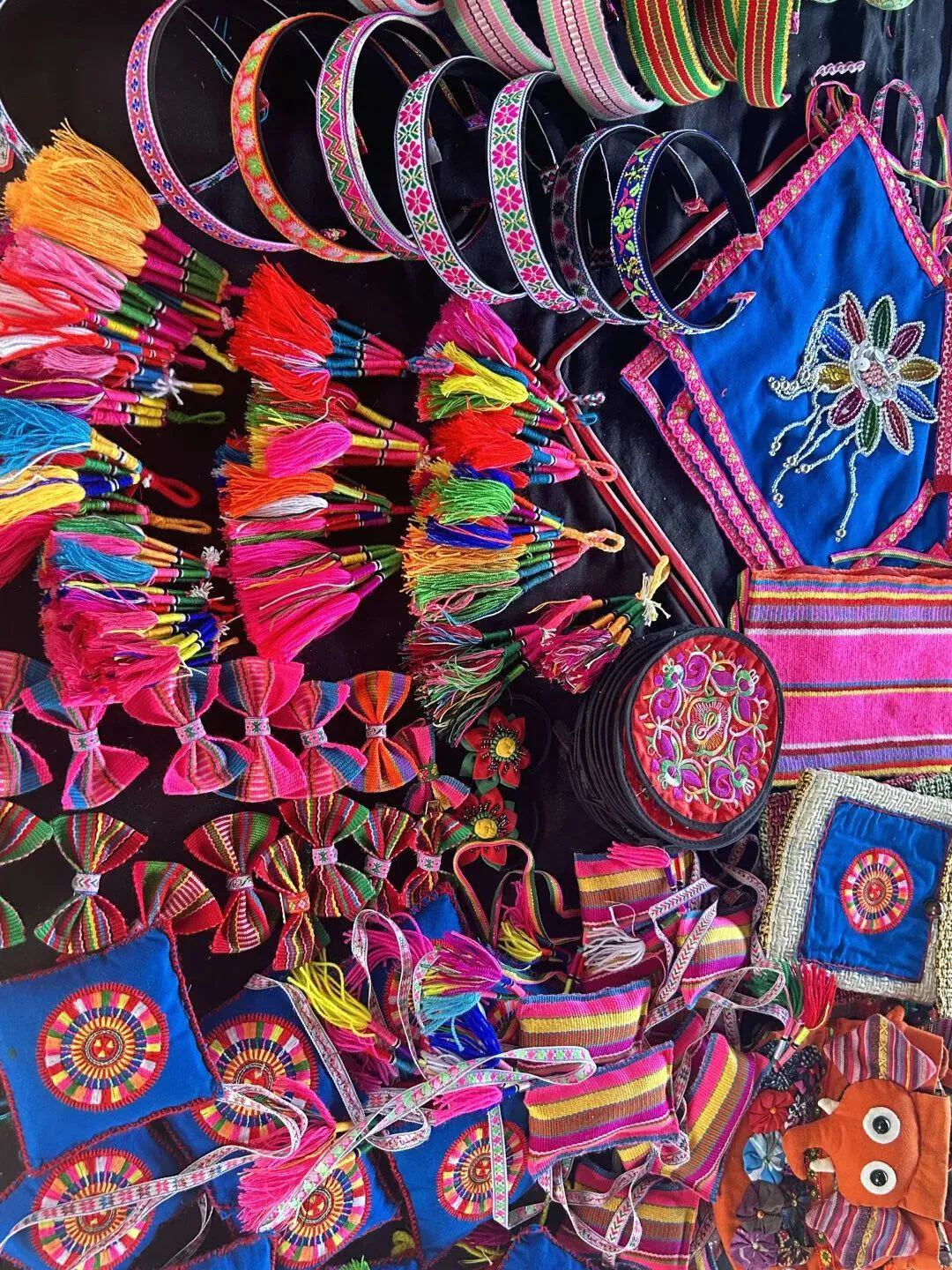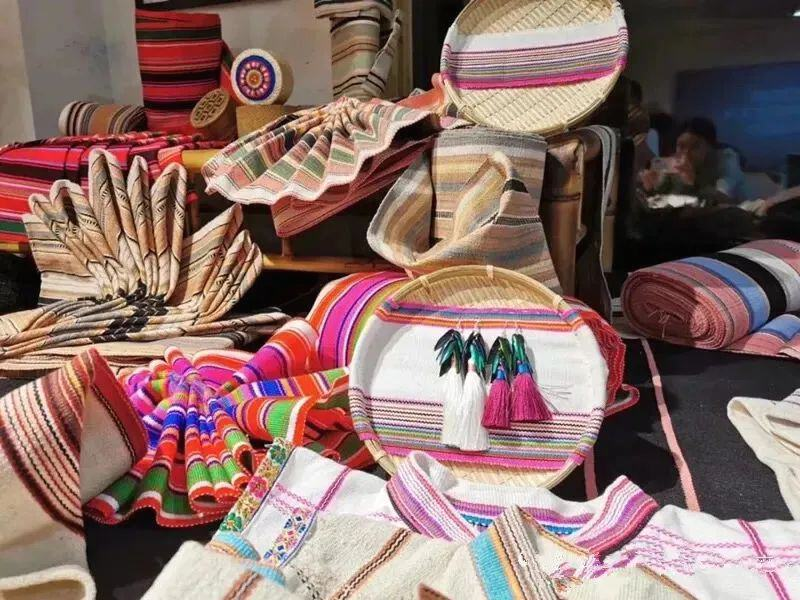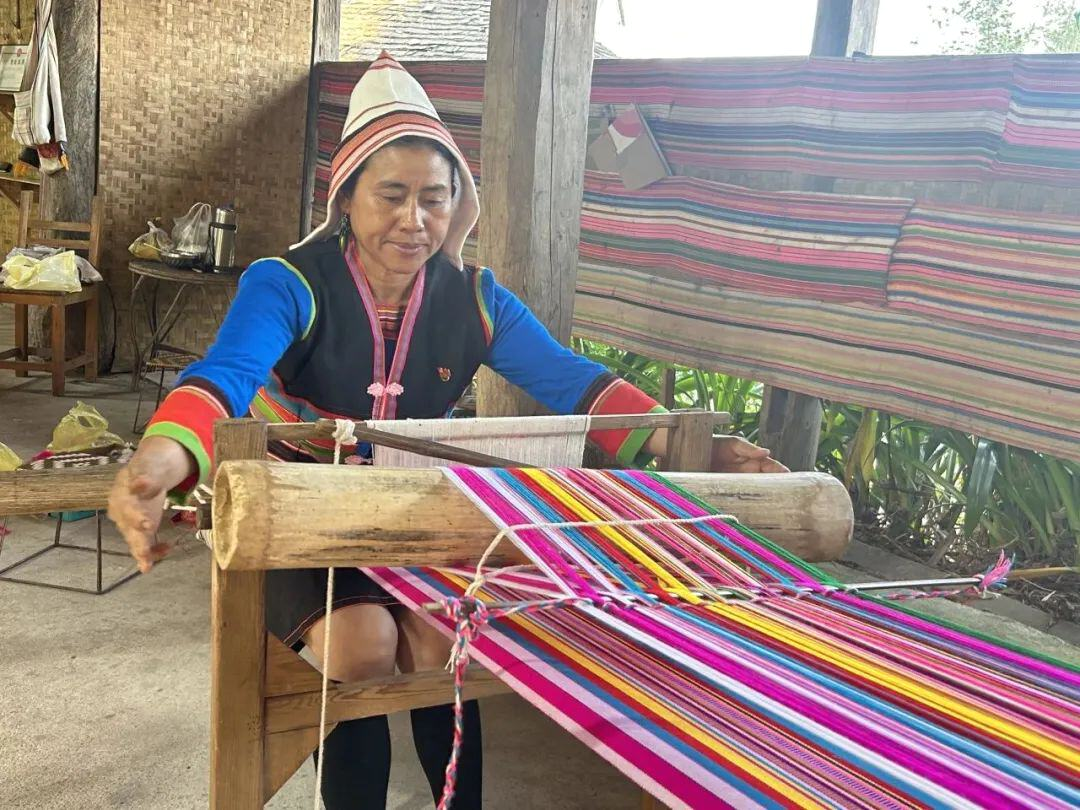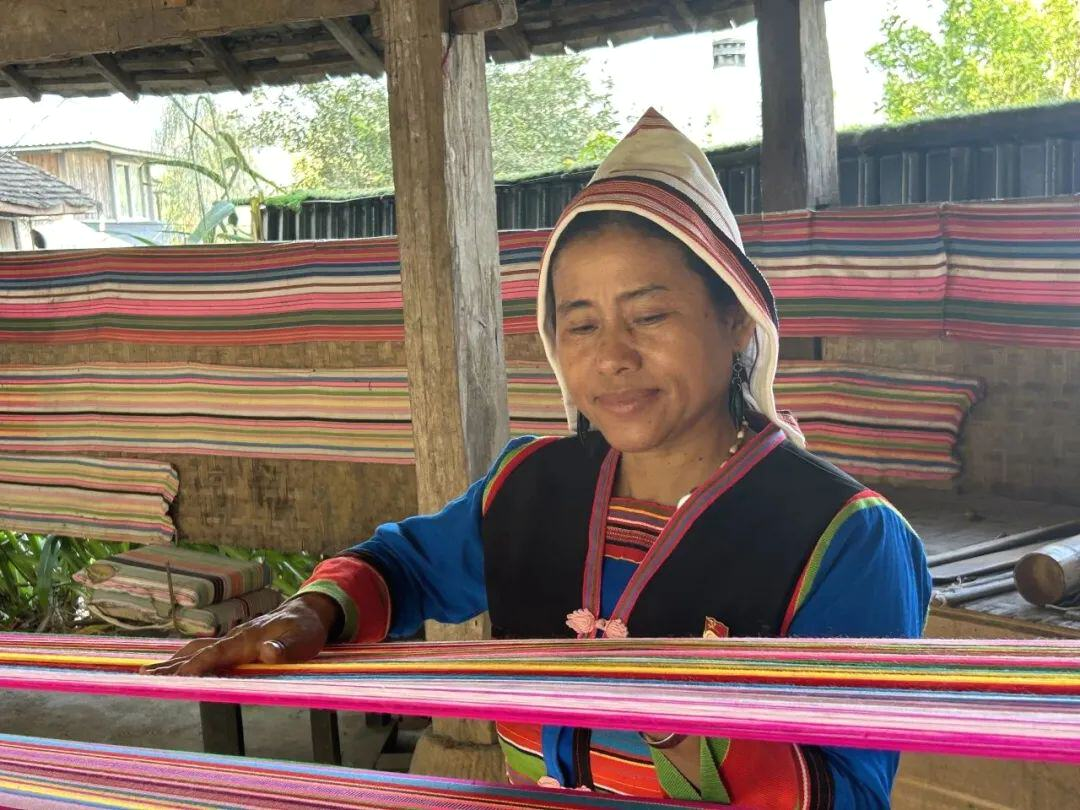Jinuo ladies create happiness with shuttle and thread

Women of the Jinuo ethnic group who are skilled in spinning, weaving, and dyeing are referred to as “Kama.” In Balai Village, Jinuoshan Township, Jinghong City, Xishuangbanna Dai Autonomous Prefecture, Yunnan Province, there is a “Kama” named Shadu. She grew up learning to weave brocades from her mother and grandmother, incorporating Jinuo people's history and culture into the so-called “machete cloth.” Shadu is a representative inheritor of the Jinuo brocade weaving skills, an intangible cultural heritage item recognized by Jinghong City.
The long-standing Jinuo weaving culture is a testament to the wisdom of the Jinuo people, developed through their labor. At the Jinuo Mikuo Professional Cooperative in Xishuangbanna, Shadu sits in front of a loom, skillfully maneuvering the shuttle back and forth with both hands. Each time the shuttle passes through the loom, she uses a machete-like board to tightly press the weft into place, repeating this process until a beautiful piece of “machete cloth” is completed.

Jinuo women take great pride in their hard work and weaving skills. They begin learning to weave cloth and make clothing in their teenage years. The clothes they wear for their rites of passage are entirely self-made. From dyeing the threads to tailoring, a complete outfit for the rite of passage requires 5 to 6 meters of “machete cloth,” which takes 15 days to several months to weave. Shadu has been weaving and making clothes since she was 13 years old, and she has continued this craft for over 40 years.
The “machete cloth” woven by the Kamas is vibrant and colorful, with every inch of the fabric carrying blessings for the wearers. The Jinuo people still preserve their most traditional weaving techniques, using materials such as cotton and tree bark to spin the thread and dyeing the cloth with natural colors. They believe that all things possess a spirit. Inheriting the wisdom of their ancestors, they transform elements of nature—mountains, water, flowers, and trees—into exquisite patterns on the cloth through skillful craftsmanship.


“During important festivals, I visit other villages to exchange weaving techniques with the women there. I hope to spread the Jinuo brocade weaving culture to more people,” Shadu said.
Today, Shadu is employed by the National Museum of China as an ethnic folk traditional craftswoman. Jinuo brocades have been sold to Guangdong, Henan, and other regions, where their charm is being appreciated by an ever-growing audience.
Text by Yunnan Daily
Translated by YNTA